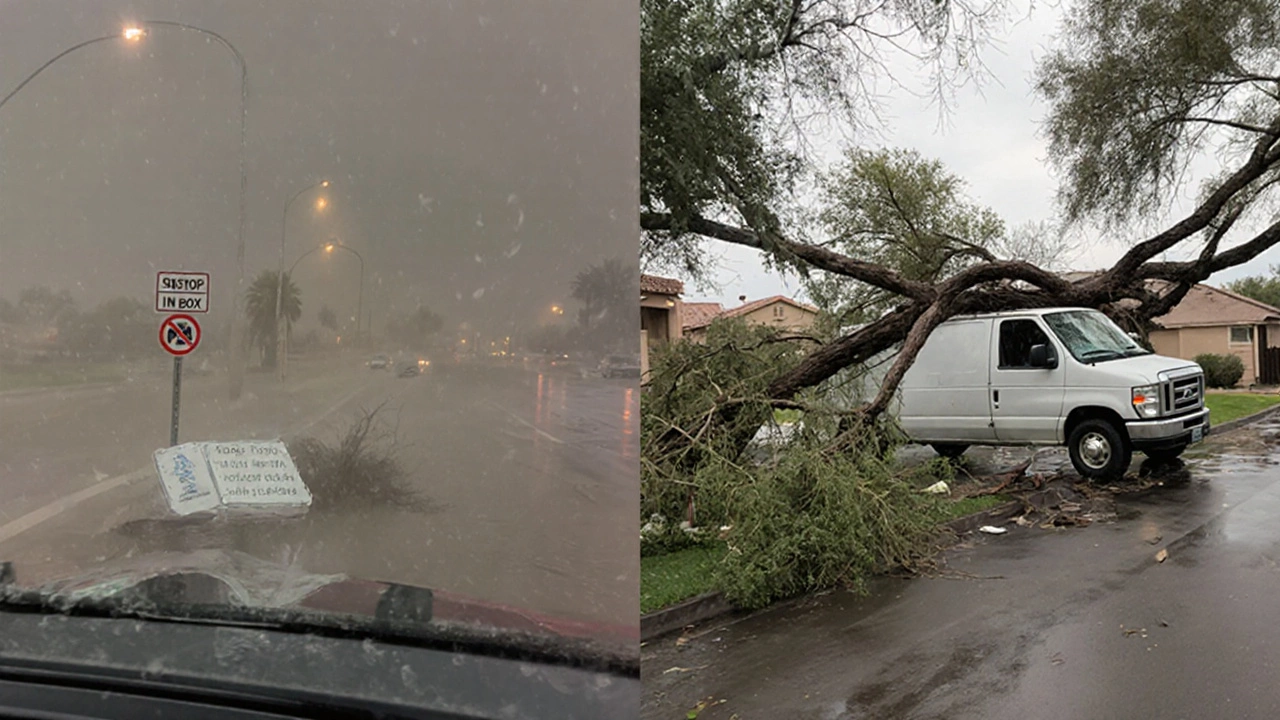Record‑Breaking Temperatures Turn Father's Day Into a Heat Test
On June 15, Phoenix lived up to its reputation for blistering summer weather. Early in the afternoon, the National Weather Service logged 109°F at Sky Harbor Airport, and the thermometer kept climbing. By the day's peak, the high hit a sweltering 113°F, while the low barely dropped to 81°F the next morning. That's 5‑10 degrees hotter than the seasonal average, making this Father's Day the hottest the city has seen in recent years.
Officials didn’t sugarcoat the danger. Heat advisories urged everyone to drink plenty of water, stay inside air‑conditioned spaces, and avoid outdoor chores during the midday scorch. The warning wasn’t limited to Phoenix; South‑Central and Southeastern Arizona were also braced for similar extreme heat as a dry, weak system pushed through the region.

How to Stay Safe When the Sun Turns Up the Heat
The Arizona Department of Health Services laid out a checklist of practical steps to beat the heat. Below are the key actions families and individuals should follow:
- Spend as much time as possible in air‑conditioned buildings; if you don’t have A/C at home, locate a nearby cooling center or public library.
- Carry a water bottle and sip regularly—start before you head outside, keep sipping while you’re out, and rehydrate once you’re back indoors.
- Plan any necessary outdoor work or exercise for early morning or late evening, when temperatures are lower.
- Check the UV Index and wear a wide‑brimmed hat, sunglasses, and sunscreen with at least SPF 30.
- Monitor local heat‑risk maps that show which neighborhoods are hardest hit.
- Make it a habit to call or visit at‑risk friends, relatives, and neighbors at least twice a day during a heat wave.
Health officials stress that these precautions are not optional. When Phoenix heat climbs above 100°F, the body can quickly become dehydrated, leading to heat exhaustion or even heat stroke. Symptoms—headache, dizziness, rapid heartbeat, or confusion—should prompt immediate medical attention.
Community groups have stepped up, setting up hydration stations in parks and offering transportation to cooling centers. Local fire departments are on standby for heat‑related emergencies, and schools have adjusted outdoor activities to keep students safe.
As the heat persists into the coming week, residents are urged to stay vigilant, keep an eye on the forecast, and prioritize cooling strategies. The goal is simple: enjoy the holiday, but keep the temperature in check for your health and that of the people around you.
